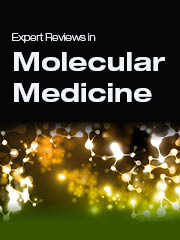Article contents
Transgenic mice carrying yeast artificial chromosomes
Published online by Cambridge University Press: 13 February 2004
Abstract
The generation of transgenic mice with yeast artificial chromosomes (YACs) has proven to be a valuable system to: (1) study gene structure–function relationships; (2) produce mouse models of human disease; (3) complement mouse mutants; (4) generate mice bioreactors; and (5) screen YAC libraries in vivo. Continued refinement of current techniques and development of new protocols should encourage widespread adaptation of this strategy for these and other applications. Use of whole loci as transgenes is an important improvement in murine transgenesis because it results in a more realistic pattern and level of gene expression during ontogeny. Application of this technology to develop human artificial chromosomes (HACs) might provide the next generation of gene therapy vectors that will overcome most of the problems and barriers associated with current vector systems.
Keywords
- Type
- Review Article
- Information
- Copyright
- © Cambridge University Press 2003
- 13
- Cited by


